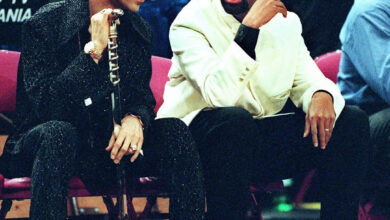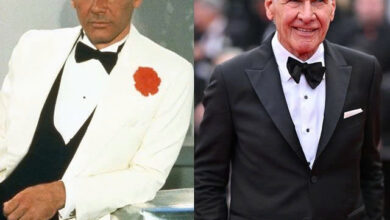The Tragic Truth Behind Freddie Mercury’s Silence: Why He Hid His Diagnosis Until His Last 24 Hours
OPINION: This article may contain commentary which reflects the author's opinion.
On November 24, 1991, the world lost one of the greatest rock icons, Freddie Mercury. The Queen frontman, known for his electrifying performances and unrivaled vocal talent, passed away from complications related to AIDS. But the tragic circumstances surrounding his death go beyond the illness itself—Freddie’s decision to keep his diagnosis secret until just 24 hours before his passing was a choice that spoke volumes about his character and the weight of his burden.
For years, Freddie had been privately battling the disease, having been diagnosed several years before his death. Only on November 23, 1991, did he reveal to the public that he had contracted AIDS. By then, his health had deteriorated to a critical point. But why did Freddie choose to keep this secret until the very end? The answer lies in his fierce protection of those he loved.
A Life in Seclusion
Freddie Mercury was never one to shy away from the limelight, but as his illness progressed, he retreated from public view. The last two years of his life were spent in seclusion, away from the relentless media scrutiny that would have undoubtedly turned his suffering into a spectacle. It wasn’t just about preserving his image—Freddie’s silence was a way to shield his friends and family from the inevitable media frenzy.
In the years leading up to his death, Freddie’s health visibly declined, but only a select few knew the true extent of his suffering. Among them were his Queen bandmates Brian May, Roger Taylor, and John Deacon, his personal assistant Peter Freestone, and his former partner Mary Austin. These were the people Freddie trusted most, and they respected his decision to keep his diagnosis private.
The Toll of AIDS
By the time Freddie publicly acknowledged his illness, the disease had ravaged his body. In a 2017 interview with The Sunday Times, Brian May recalled the tragic extent of Freddie’s physical deterioration. “The problem was actually his foot, and tragically there was very little left of it. Once, he showed it to us at dinner. And he said, ‘Oh Brian, I’m sorry I’ve upset you by showing you that.’ And I said, ‘I’m not upset, Freddie, except to realize you have to put up with all this terrible pain.’”
Despite his pain, Freddie’s spirit remained intact, his love for life and music evident until the very end. But even in his darkest moments, he sought to protect those around him from the full gravity of his condition. This desire to spare his loved ones from suffering is perhaps why he waited so long to publicly announce his diagnosis.
A Silent Battle
Freddie’s personal assistant, Peter Freestone, offered further insight into the rock legend’s mindset during his final years. According to Peter, Freddie had been aware of the HIV/AIDS crisis sweeping through the world and had seen many friends die from the disease. “He might have thought he was infected, but again, like many of us, he put it to the back of his mind, thinking ‘it won’t happen to me,’” Freestone recalled.
It was Mary Austin, Freddie’s closest confidante, who eventually convinced him to seek a proper diagnosis after a concerning mark appeared on his hand. By then, the disease had progressed, but Freddie delayed getting the confirmation he likely feared. “I’m sure Freddie had an idea what the doctor was going to say, so didn’t want to hear the diagnosis,” Peter revealed. This reluctance was not born out of denial but out of a desire to continue living his life without the weight of the inevitable hanging over him.
A Final Decision
As the end neared, Freddie took control of his fate in the only way he could. After returning from a trip to Switzerland in November 1991, Freddie made the heartbreaking decision to stop taking his medication. He knew the end was near and was prepared to face it on his own terms. Yet even in those final days, his priority was to protect the people he held dearest, shielding them from unnecessary anguish.
In those final 24 hours, Freddie Mercury finally shared his diagnosis with the world, leaving behind a legacy of love, music, and bravery. His decision to remain silent for so long wasn’t a reflection of fear or shame, but of deep care for those around him. Even as AIDS took its toll, Freddie Mercury chose to protect his loved ones until the very last moment.



